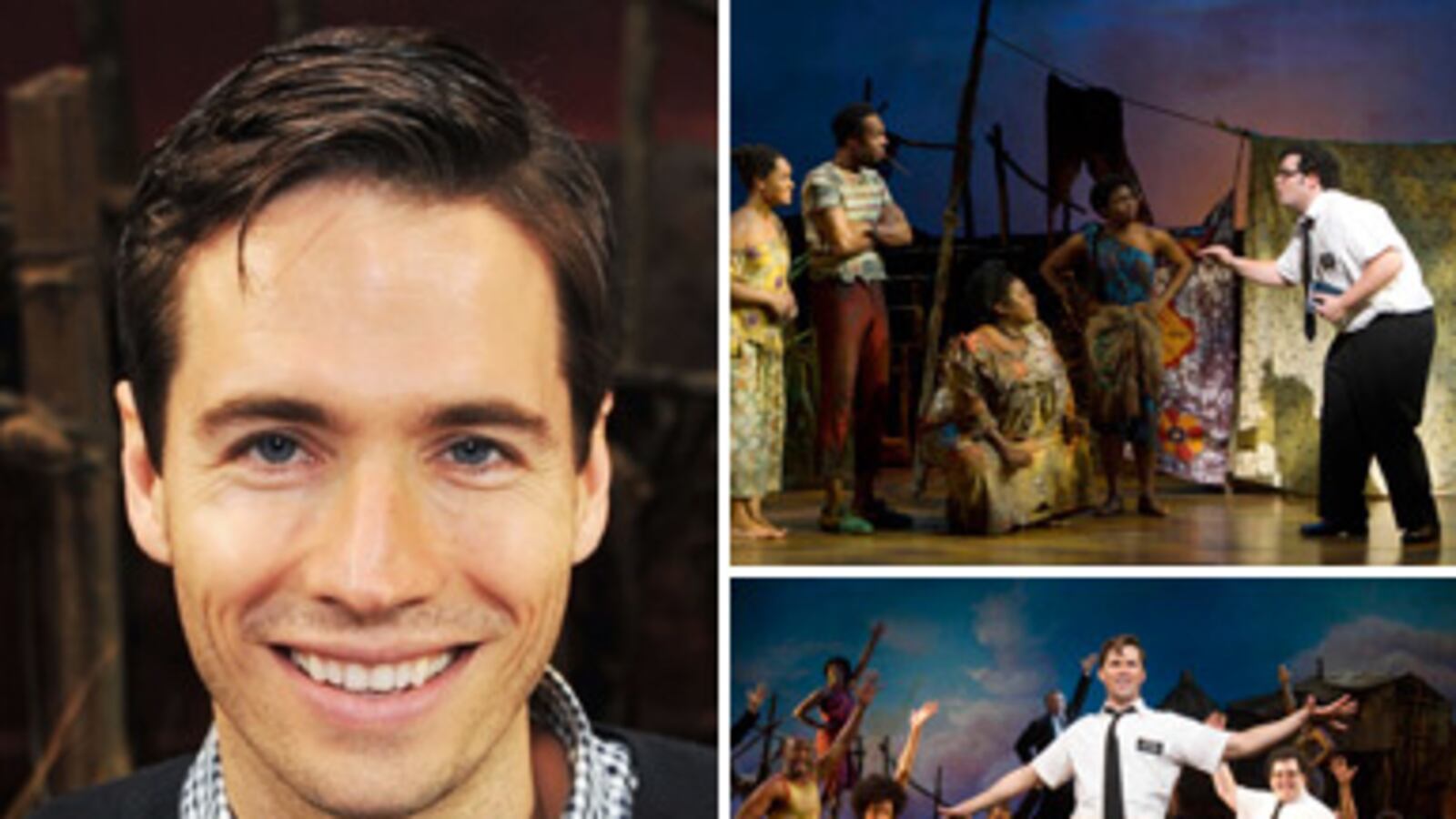When Clark Johnsen auditioned for The Book of Mormon, the Broadway musical now up for 14 Tony Awards, the casting director was startled by the depth of his line readings -- until she looked at his resume and saw he went to Brigham Young University. "Yes, I was a Mormon missionary," he told her. "I don't know if that level of authenticity is a good thing or a bad thing for you guys." It was a good thing.
On playing a missionary on stage eight times a week.When I was 19, walking through the streets of Mexico on my mission, I would have never believed that one day I'd be on a Broadway stage wearing the missionary clothes and the nametag that says Elder and The Church of Jesus Christ of Latter-day Saints. Some nights I'm beaming with laughter and some nights I feel like crying because it's so meaningful to me to be coming full circle. It feels bizarre in the most wonderful way.
On what makes it meaningful.The scene where we baptize a whole village of Africans always moves me because I loved my mission and when we baptized people, the sense of hopefulness and rebirth for them was just so palpable. It was beautiful to be a part of that journey with people, to see them reaching for change and hoping their life will improve in some way and then taking this step of immersing themselves in water.
On the show-stopper "Turn It Off," sung by a closeted missionary struggling with his sexuality.I'm one of the few missionaries who actually was out to myself as a gay person on my mission and out to some of my mission companions--the ones who asked. [The Book of Mormon song] "Turn It Off" is such an insightful view into the psychology of a gay missionary in particular, but also into all Mormons. In the church, you don't say you're gay, you say you have homosexual tendencies, because "gay" is this label they want you to hopefully outgrow, which I tried to do. It didn't work.
"It feels bizarre in the most wonderful way."

On leaving the faith.As a gay Mormon if I wanted to line up with the leadership of the church, I had to view myself as a broken person in need of change. I was in therapy to help me change and I started feeling more and more like, "I'm not broken, I'm whole, I'm loved, I'm complete, and I'm beautiful, and I'm not going to buy into this anymore."
On Rory O'Malley, the actor nominated for a Tony Award for his role as closeted Elder McKinley.One of the things I love about Rory is his curiosity. We talked a lot about being a missionary struggling with his sexuality. It's a fascinating conundrum. The show treats it in such a light way, but the topic of homosexuality and Mormonism is one I've spent a lot of time thinking about and trying to figure out with my family and with myself. Rory is such an advocate for equal rights [O'Malley co-founded the gay rights organization Broadway Impact]. He grew up Catholic, so it's fascinating that he's getting to play a person struggling to reconcile these two sides of himself. It's such a mirror of my own life.
On the Mormon church's slowly evolving stance on gay rights.One of the defining characteristics of Mormonism is its ability to adapt and survive. I found myself baffled by their moves with Prop 8 a few years ago. But I think doctrinally they will figure out how to spin it so gay people who are legally married can be together in the church and have a family and hold the priesthood. I do think I'll see that during my lifetime.
On whether his family has seen the show.One of my brothers—a South Park fan who encouraged me to audition—already came and saw it and really enjoyed the show. He felt a little like, "I don't really feel offended, but should I?" My mom is thinking of seeing the show this summer before she leaves in October on a mission to Guam with my dad. She's someone who doesn't want to hide from anything. She's always been very courageous, but I'm going to have to have a real talk with her about the language of the show before she sees it.





